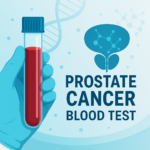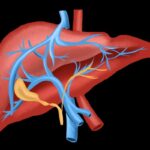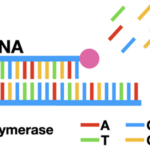Understanding Lipidome Changes for Better Cardiometabolic Health
Imagine eating healthier fats could not only make you feel better but also significantly reduce your risk of heart disease and type 2 diabetes. Well, a recent study published in Nature Medicine suggests just that! Researchers found that swapping out saturated fats for unsaturated fats in your diet can lead to changes in your body’s lipidome—essentially the “fingerprint” of fats in your blood—which in turn can lower your risk of serious cardiometabolic diseases.
What is the Lipidome?
Before we dive into the findings, let’s break down what the lipidome is. The lipidome refers to the complete set of lipids (fats) in a cell, tissue, or organism. These lipids play crucial roles in cell structure, energy storage, and signaling. Changes in the lipidome can reflect metabolic health and disease risk.
The Study’s Groundbreaking Findings
In the study, scientists constructed a multi-lipid score (MLS) to summarize the effects of replacing saturated fats with unsaturated fats. This score was based on 45 lipid metabolite concentrations and was developed using data from the Dietary Intervention and Vascular Function (DIVAS) trial. Here’s what they found:
- Reduced Cardiovascular Disease Risk: Improved dietary fat quality was linked to a 32% reduction in cardiovascular disease incidence.
- Lower Type 2 Diabetes Risk: There was also a 26% reduction in the incidence of type 2 diabetes.
How the Study Was Conducted
Researchers utilized lipidomics data from a randomized controlled dietary intervention trial. Participants were either put on a diet high in saturated fats or a diet high in unsaturated fats. By analyzing plasma lipidomics, they created the MLS. The study involved several cohorts, including the EPIC-Potsdam cohort, the Nurses’ Health Study, and the PREDIMED trial.
The Role of Different Fats
The focus was on replacing saturated fats (SFAs) commonly found in animal products with unsaturated fats (UFAs) from plant-based sources. This dietary switch not only altered the lipid profile in the participants’ blood but also demonstrated significant health benefits.
Lipidome and Cardiometabolic Health
The lipidome changes were most notable in several key lipid classes, including:
- Ceramides: These lipids are linked to insulin resistance and inflammation.
- Cholesterol Esters: Changes here reflected better cholesterol transport and metabolism.
- Phosphatidylcholines: These are essential for cell membrane integrity and signaling.
Real-World Implications
The study suggests that monitoring lipidome changes can be a powerful tool in precision nutrition. By understanding how specific dietary changes impact our lipid profile, we can tailor diets to individual needs, potentially predicting and preventing diseases more effectively.
Case Study: The Mediterranean Diet
The PREDIMED trial, which focused on a Mediterranean diet rich in olive oil and nuts, provided additional support. Participants with initially poor lipid profiles showed the most significant improvement in diabetes risk after adopting the Mediterranean diet.
Final Thoughts
This study highlights the transformative potential of dietary changes on our lipidome and overall health. By making informed choices about the fats we consume, we can significantly reduce our risk of cardiometabolic diseases and move towards a future of personalized, precision nutrition.
For more information on this groundbreaking study, check out the full article here.
Sneak Peek: EpiAge – The Next-Generation Biological Clock
While the lipidome study provides insights into dietary impacts on health, it’s fascinating to see how advanced tools like EpiAge can further personalize health strategies. EpiAge uses next-generation sequencing to reveal your body’s true age by analyzing DNA methylation, providing a comprehensive view of your health. Imagine coupling lipidome data with epigenetic insights from EpiAge, tailoring an even more precise health plan for longevity and well-being. Discover more about EpiAge here.
Reference:
Eichelmann, F., Prada, M., Sellem, L., Jackson, K. G., Salas-Salvadó, J., Razquin Burillo, C., Estruch, R., Friedén, M., Rosqvist, F., Risérus, U., Rexrode, K. M., Guasch-Ferré, M., Sun, Q., Willett, W. C., Martinez-Gonzalez, M. A., Lovegrove, J. A., Hu, F. B., Schulze, M. B., & Wittenbecher, C. (2024). Lipidome changes due to improved dietary fat quality inform cardiometabolic risk reduction and precision nutrition. Nature Medicine. Link to the article.
Recent Blog Posts
-
 13 Jun 2025MTL Epitherapeutics and RI-MUHC Develop Early Prostate Cancer Blood Test
13 Jun 2025MTL Epitherapeutics and RI-MUHC Develop Early Prostate Cancer Blood Test -
 11 Jan 2025EpiAge Research Publication Signals a New Era in Understanding Biological Aging
11 Jan 2025EpiAge Research Publication Signals a New Era in Understanding Biological Aging -
 18 Nov 2024EpiMedtech Global Announces FDA Registration of EPIAGE, the First Epigenetic Age Test Registered by the FDA
18 Nov 2024EpiMedtech Global Announces FDA Registration of EPIAGE, the First Epigenetic Age Test Registered by the FDA -
 18 Nov 2024EpiMedTech Global Validates Unique epiCervix HPV Combo Test for Cervical Cancer Detection
18 Nov 2024EpiMedTech Global Validates Unique epiCervix HPV Combo Test for Cervical Cancer Detection -
 31 Oct 2024HKG epiTherapeutics’ MetaGen Genetic Risk Assessment Test Receives FDA Registration, Now Available in the U.S.
31 Oct 2024HKG epiTherapeutics’ MetaGen Genetic Risk Assessment Test Receives FDA Registration, Now Available in the U.S. -
 31 Oct 2024EpiMedTech Global Launches epiGeneComplete: A Breakthrough Genetic and Epigenetic Test for Comprehensive Health Diagnostics
31 Oct 2024EpiMedTech Global Launches epiGeneComplete: A Breakthrough Genetic and Epigenetic Test for Comprehensive Health Diagnostics -
 30 Oct 2024Enhanced Early Detection of Liver Cancer
30 Oct 2024Enhanced Early Detection of Liver Cancer -
 08 Oct 2024Are Microarrays Still Reliable? How Next-Generation Sequencing Outperforms Traditional Methods
08 Oct 2024Are Microarrays Still Reliable? How Next-Generation Sequencing Outperforms Traditional Methods



